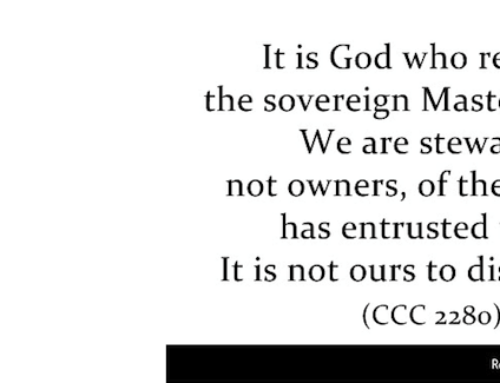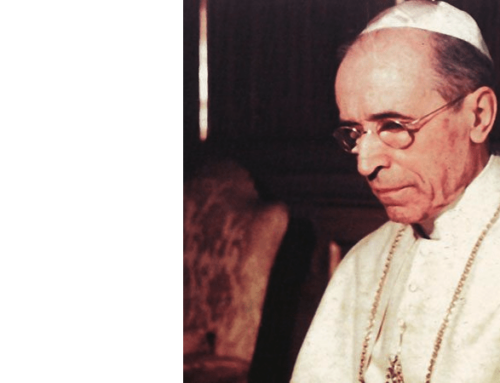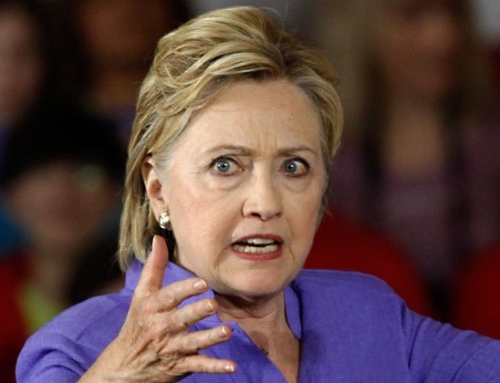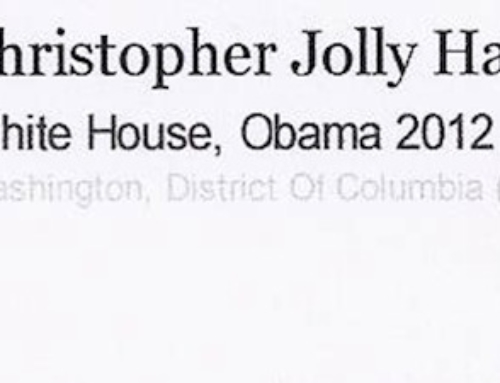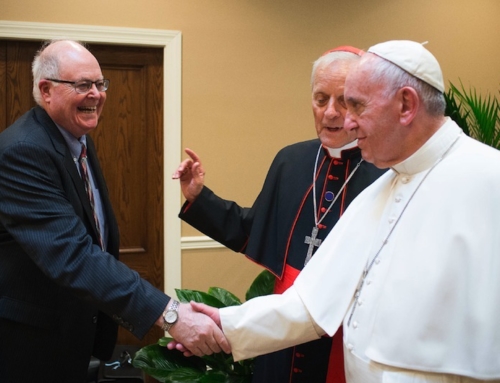by William A. Donohue
(Catalyst 11/2001)
The war on Pius XII hit a new low when Commentary magazine published a piece by Kevin Madigan in its October issue. In the article,
“What the Vatican Knew About the Holocaust, and When,” Madigan argues, “The Vicar of Christ knew enough, but did not care enough, to speak more forcefully or to act more courageously than he did.” Madigan teaches the history of Christianity at the Harvard Divinity School.
Did not care enough? When a charge of this magnitude is made, convincing proof is demanded. On this score, Madigan offers not one scintilla of evidence. Indeed, his charge is slanderous.
Madigan is right to say that Pius XII knew during the war what was happening to Jews. Though the pope was not “silent,” I will not contest Madigan’s charge that he did not speak out in a “forceful” manner. What is being contested is Madigan’s ability to read the pope’s mind: Madigan impugns the pope’s character by concluding that the Holy Father just didn’t care.
For the sake of argument, let’s assume that Madigan is right about the pope’s motive. If it is fair to conclude that an uncaring attitude explains why Pius XII didn’t speak out more forcefully, then it should be fair to conclude that this motive applies equally to everyone else who acted in a similar manner. Take, for example, the reaction of American Jews.
When Hitler took over in 1933, he wasted no time showing his hatred for Jews. American Jewish leaders quickly got together to discuss public demonstrations against Hitler. Plans were made for an anti-Hitler parade in New York on May 10, 1933. But then the American Jewish Committee and B’nai B’rith put out a joint statement condemning “public agitation in form of mass demonstrations.” They feared it would only “inflame” matters. So there was silence.
In 1935, the Nuremberg race laws were enacted effectively stripping Jews of all civil rights. And what was the reaction of American Jews? Led by Rabbi Stephen Wise of the American Jewish Congress, they worked against legislation that would make it easier for Jews to emigrate to the U.S. from Germany.
November 9-10, 1938, will always be remembered for Kristallnacht, the “Night of Broken Glass.” Hitler’s Storm Troopers in Berlin went on a rampage killing Jews, entering their homes, destroying their businesses, burning synagogues, etc. American Jewish leaders were shaken by these revelations but they nonetheless eschewed a “forceful” approach.
Indeed, on November 13 and December 13, at a meeting of the General Jewish Council, all the major Jewish organizations assembled to discuss their options. The American Jewish Congress, American Jewish Committee, B’nai B’rith and the Jewish Labor Committee debated what to do about immigration reforms that would alleviate the plight of German Jews. In the end, they said, “at least for the time being, nothing should be done with regard to this matter.” In addition, all of these Jewish organizations went on record saying, “there should be no parades, demonstrations or protests by Jews.”
As Madigan correctly points out, it was in August 1942 when Gerhard Riegner of the World Jewish Congress notified his colleagues in London and New York of an “alarming report” depicting plans to exterminate Jews. But there is little evidence that this galvanized the Jewish leaders to act more courageously (the public was of yet unaware of the news). Indeed, the major Jewish organizations even failed to lobby on behalf of a bill sponsored by Rep. Emanuel Celler that would have made it easier for Jewish refugees to emigrate from France to the U.S. during Nazi persecution. The bill died in committee.
The news that Hitler had gone on a rampage against Jews was released by the State Department in November 1942 via Rabbi Wise; he was the head of the World Jewish Congress and the American Jewish Congress. Jewish-owned newspapers like the New York Times and the Washington Post treated the news with aplomb. For example, the Times reported that 2 million Jews had been killed in the Nazi extermination campaign. It placed the story on p. 10 surrounded by ads for Thanksgiving Day turkeys.
This enfeebled reaction of the New York Times was not an anomaly. It not only buried other stories of Nazi terror, the total number of editorials it ran criticizing the Nazis in the years 1941, 1942 and 1943 was nine (three each year). Even worse, when the Nazis arrested a cousin of Arthur Sulzberger, the Times chief instructed his Berlin bureau chief to do “nothing.” Sulzberger said he didn’t want to antagonize the Nazis (sound familiar?). The cousin, Louis Zinn, was so despondent that when he left prison he hanged himself.
I could go on but the point is obvious. Or is it? The point I want to make is that there were plenty of good reasons why Jews weren’t more vocal. Any change in immigration quotas for one country surely would have raised serious moral questions regarding what to do about other countries where Jews were suffering. Would asking for special treatment anger other Americans at home? Was there not the specter of rising anti-Semitism at home? Wasn’t it realistic to think that if protests mounted in the U.S. that the plight of Jews might only get worse in Europe?
In hindsight, perhaps the reasons Jews gave for not speaking up more forcefully are unpersuasive. But if someone today were to conclude that Jewish inaction was a function of not caring enough, I would conclude that the accuser is anti-Semitic. This is why I believe Madigan’s charge that Pius XII didn’t care what was happening to the Jews is so scurrilous.
There were plenty of good reasons why the pope did not use the bully pulpit. For one thing, many prominent Jews begged him not to stir the pot. Moreover, the pope knew that the Nazis were monitoring every word he said very closely and that is why he wanted to avoid making a bad situation worse. Here is what he said in June 1943: “Every word from Us in this regard to the competent authorities, every public allusion, should be seriously considered and weighed in the very interest of those who suffer so as not to make their position even more difficult and more intolerable than previously, even though inadvertently and unwillingly.” These are not the words one would expect from someone who just didn’t care.
Even in 1964, in the wake of Hochhuth’s wretchedly anti-Catholic play, “The Deputy,” the ADL said, “A formal statement [on the part of the pope] would have provoked the Nazis to brutal retaliation and would have substantially thwarted further Catholic action on behalf of Jews.”
Like many other critics of Pius XII these days, Madigan assumes that the pope had some magical powers to deter Hitler. Historian William D. Rubinstein sheds important light on this issue: “In all likelihood—a likelihood probably amounting to a near certainty—Hitler would have paid no heed whatever to any pronouncement on the Jews made by the Vatican (which had denounced Nazi anti-semitism before the war began).” Rubinstein also considers other measures that might have been taken. “Theoretically,” he says, “and in hindsight, the Pope might have excommunicated all Catholic members of the SS (or of the Nazi Party) although the only likely effect of such a pronouncement would have been that the Nazis denounced the Pope as an agent of ‘Judeo-Bolshevism’ and an imposter.”
Sir Martin Gilbert, one of the most noted historians in Europe and an expert on World War II, provides a mature understanding of how we can realistically judge the behavior of Pius XII. The test for the pope, he says, “was when the Gestapo came to Rome in 1943 to round up the Jews.” Gilbert writes, “And the Catholic Church, on his direct authority, immediately dispersed as many Jews as they could.” Which is why only 17 percent of Italy’s Jews perished. This figure not only stacks up well against what happened in other European countries, it reflects something else: more Jews were saved proportionately in Catholic countries than Protestant countries. This explains why Hitler biographer John Toland said that as of 1943, “The Church, under the Pope’s guidance, had already saved the lives of more Jews than all other churches, religious institutions and rescue organizations combined, and was presently hiding thousands of Jews in monasteries, convents and Vatican City itself.”
But Madigan will have none of it. He knows he can’t deny that Catholics saved hundreds of thousands of Jewish lives, so the best he can do is say the pope had nothing to do with it. Madigan says the pope “permitted” Catholics to rescue Jews; Pius also “allowed” Catholic properties to shelter Jews.
This is a remarkable conclusion, but it is not unusual among the critics of Pius XII. Susan Zuccotti, in her book, Under His Very Window, takes the same position. English historian Owen Chadwick disposes of this view rather handily. Zuccotti, he says, acknowledges the heroic acts of priests, monks and nuns. But as Chadwick observes, “She keeps emphasising that these courageous and life-risking endeavors were carried out without any instruction, order, encouragement, from the Vatican.” Chadwick sees the hole in the argument: “But why should they have been? The most bull-on-the-breakfast-table papist does not demand an order from the Pope before a Christian needs to behave like a decent person when faced by murder.”
One final comment. Isn’t it strange that the same Pius XII who is routinely painted as an autocrat is now described as someone who simply bows to the wishes of the faithful? If he was the authoritarian that his critics say he was, then someone needs to explain his accommodating behavior in these instances. Either that or stop with the propaganda.


